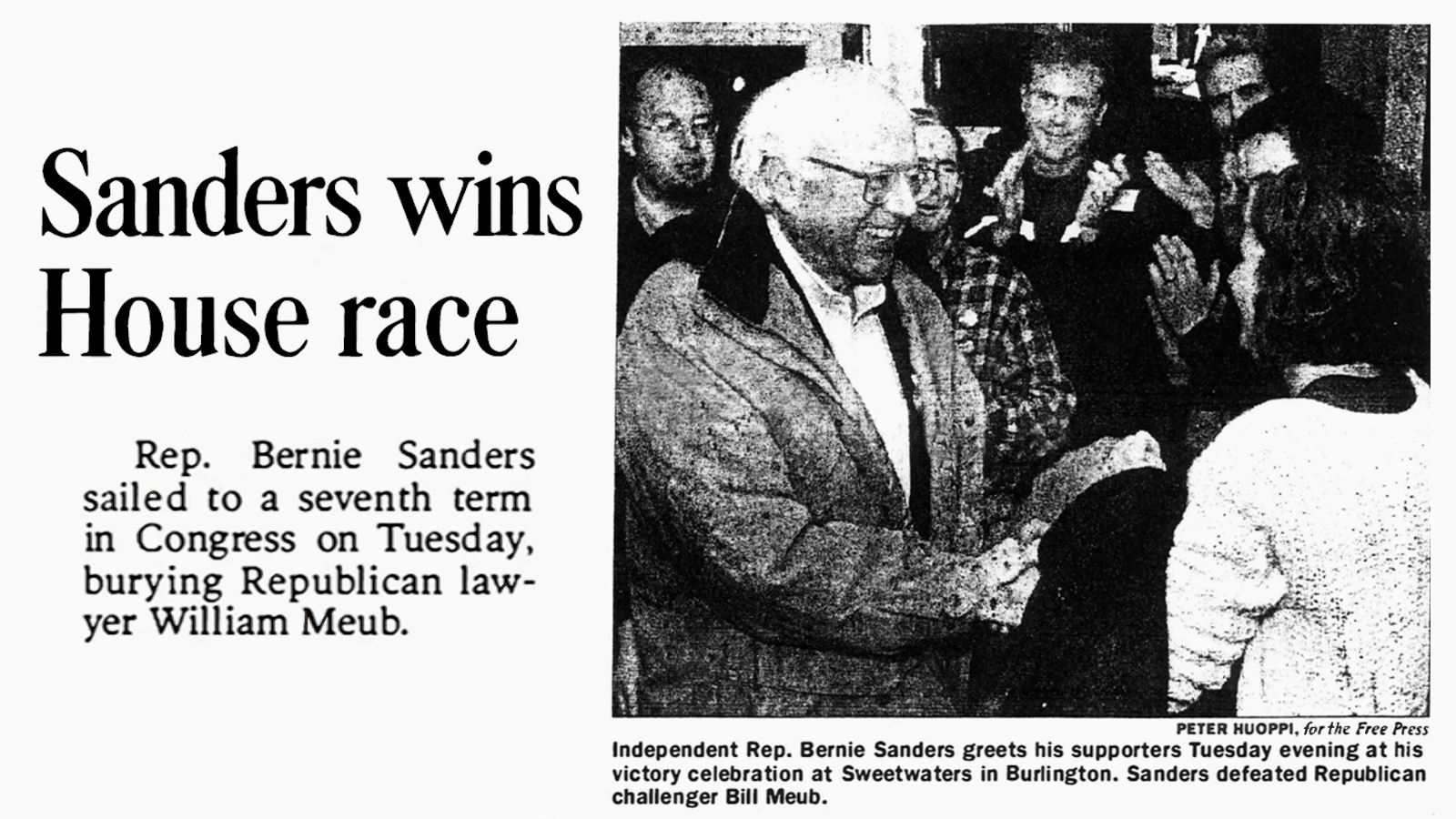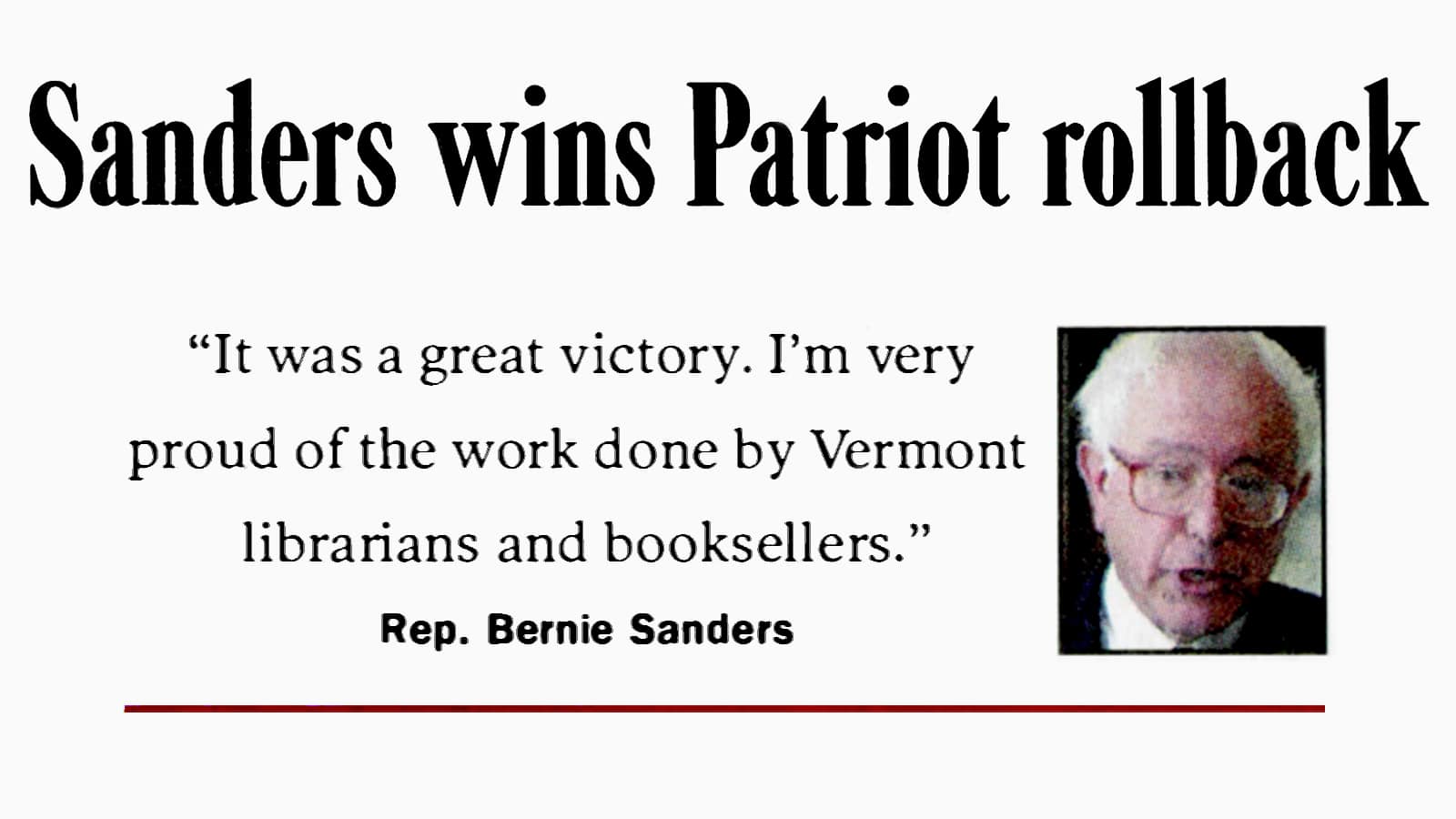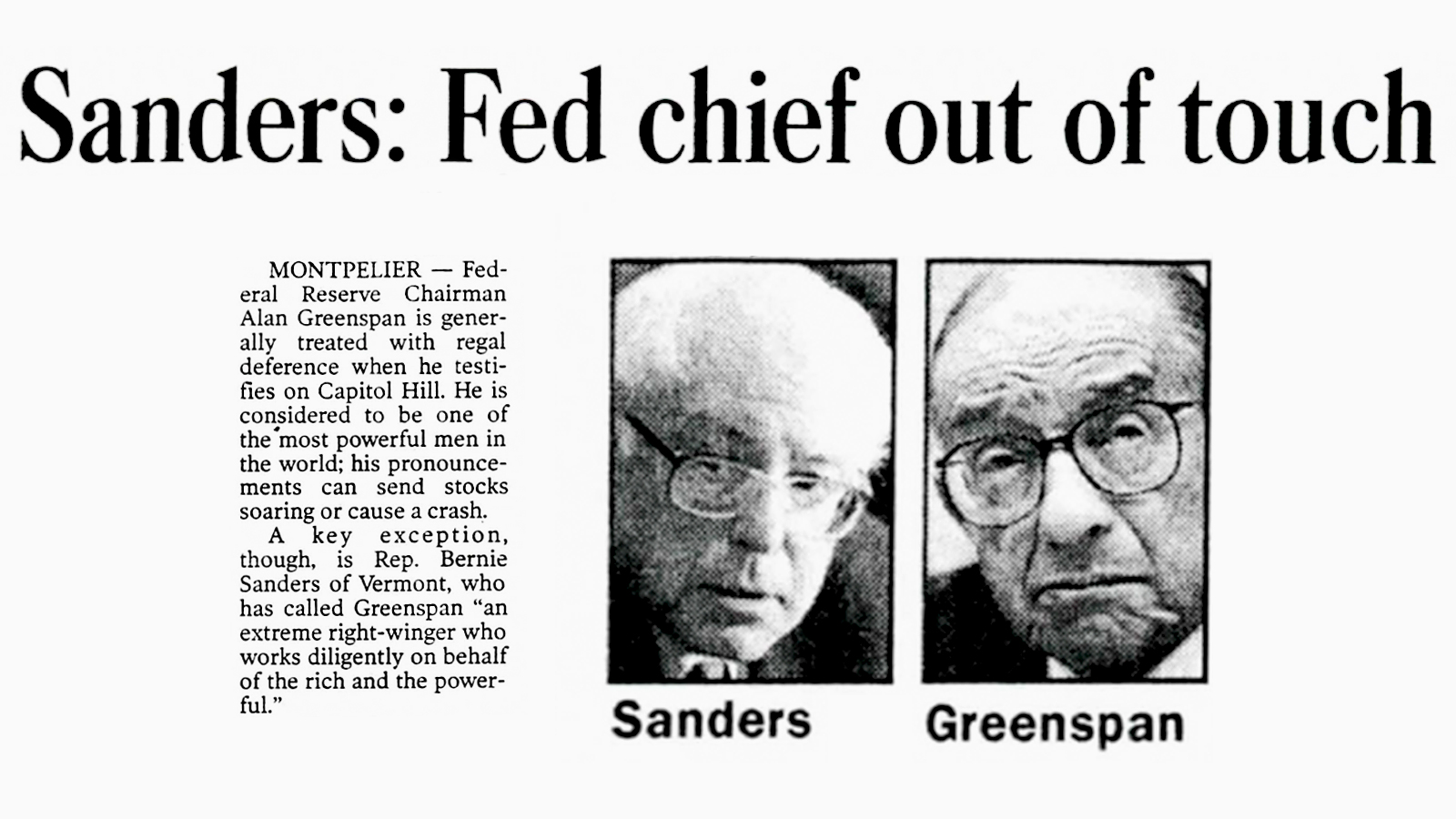In June 2002, Bernie Sanders kicked off his seventh congressional campaign at Burlington’s waterfront community boat house, stating:
“From my first election to my last, what the people of Vermont have said to me is, “Bernie, you go down there and shake up that system. And that is what I have been attempting to do for the last 12 years.”[1]
His platform remained the same as when he was Mayor of Burlington: he would continue to speak for the poor, elderly, working families, veterans, union workers, and others whom he felt had little voice in Congress.[1]
“I don’t know anybody who has worked harder and stood more for social justice and economic justice than Bernie Sanders,’ said former Vermont Governor Philip Hoff. “In that sense, he hasn’t changed a bit.”[1]
Philip Fiermonte, the American Federation of Teachers executive director and a former Sanders staffer, noted that early critics said he would be ineffective without a party affiliation. “No one says that anymore, not even his opponents.”[1]
And the Democratic party in Vermont would not field a candidate against Sanders because he shared so many of their views.[1]
Although familiar campaign themes resonated throughout his 2002 campaign, Bernie had also taken up several new fights during time in Congress: taking on the pharmaceutical industry, railing against corporate executives who banked huge salaries but laid-off workers and transferred their jobs overseas; and holding Republicans for cutting taxes on the wealthy while cutting funding for health care, education, veterans and the environment.
He also believed the country should wean itself off Middle Eastern oil by fostering sustainable energy and working to alleviate the world poverty that breeds terrorism and anti-Americanism.
In addition to being the favorite to win against Republican lawyer William Maub, Sanders went into the campaign with a $600,000 campaign fund and a seasoned strategist in Jane Sanders, his campaign manager, and wife.
On November 5, he won the election with 137,328 votes – 65%. In his victory speech in front of Church Street restaurant Sweetwaters, he vowed to fight the export of U.S. jobs to foreign countries, work for affordable health care and prescription drugs, and support Vermont’s family farms.[2]
“We have got to rally the American people to stand up and fight for the rights of ordinary people,” Sanders said.[2]
He also acknowledged Meub’s hard-fought campaign: “ Being a candidate is never easy, and he ran very hard.”[2]
 Back to Timeline
Back to Timeline


